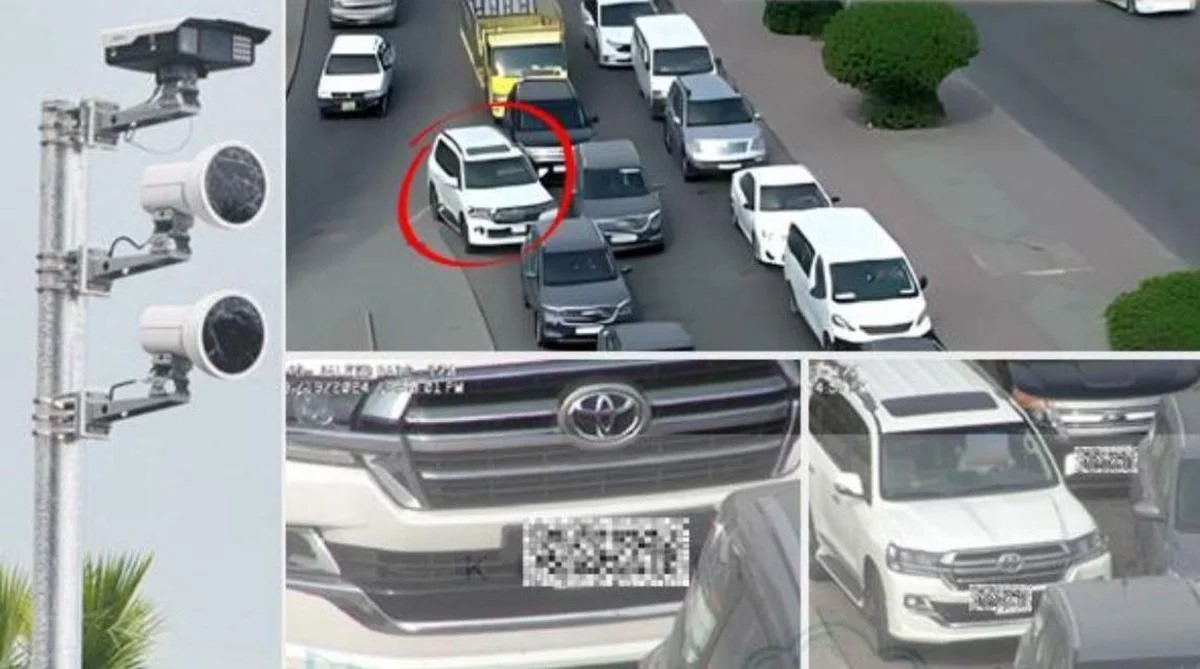12/02/2025
12/02/2025

KUWAIT CITY, Feb 12: Brigadier General Mohammed Al-Subhan, Chairman of the Unified Gulf Traffic Week Committee 2025, revealed that 74 expatriates were deported in 2024 due to serious traffic law violations, including driving without a license and engaging in hazardous driving behaviors. Al-Subhan also highlighted that a total of 61,553 violations were recorded, primarily related to seat belt use and mobile phone usage while driving.
During an appearance on Kuwait TV's Good Morning program, Brigadier Al-Subhan explained that the recent amendment to the traffic law was prompted by rising accident rates, traffic violations, and fatalities. The law is considered crucial for safeguarding individuals' lives and property, as stated in the explanatory memorandum.
Al-Subhan pointed out that all Gulf countries periodically update their traffic laws to stay in sync with evolving circumstances and to deter lawbreakers. In Kuwait, 90% of traffic accidents are attributed to inattention, especially from using mobile phones while driving. These distractions often result in injuries, deaths, and significant damage to public and private property. The Ministry of Interior records between 200 and 300 accidents daily, with 28 to 30 injuries on average.
The previous fine for using a mobile phone while driving was 5 dinars, but Brigadier Al-Subhan noted that this amount was insufficient to deter offenders. As a result, the traffic law amendment has raised the fine to 75 dinars to better discourage the behavior.
In preparation for the new law's implementation on April 22, Brigadier Al-Subhan revealed that the government has allowed a three-month grace period to raise awareness about the changes. To educate the public, the General Traffic Department has created awareness teams that conduct educational seminars at universities, schools, and malls, while also utilizing media platforms like TV, radio, newspapers, and websites.
Addressing misconceptions about child safety, Brigadier Al-Subhan clarified that the amended traffic law prioritizes child protection. Children under the age of ten are prohibited from sitting in the front seat. Additionally, children must be securely fastened in the back seat with a seat belt, and no child under ten can be left unattended in a vehicle. Violations of these regulations carry a fine of 50 dinars. If a child is injured due to neglect, the driver could face criminal charges under the Child Protection Law, which could result in imprisonment for six months and a fine of 500 dinars.
Brigadier Al-Subhan also discussed the role of surveillance technology in enforcing traffic laws. Kuwait has installed approximately 1,000 cameras across roads to monitor violations such as speeding, running red lights, and seat belt use. Notably, 252 cameras equipped with artificial intelligence have been deployed to detect mobile phone usage while driving, seat belt violations, and line-crossing at intersections.
The implementation of these AI cameras has yielded significant results. Between September and the beginning of this year, the cameras recorded 61,000 violations, primarily related to seat belts and mobile phone usage. However, there was a noticeable reduction in violations as drivers began adhering to the law, suggesting that the increased penalties and surveillance have had a positive impact on road safety.
Brigadier Al-Subhan also discussed penalties for reckless driving, including a fine of up to 150 dinars for reckless gatherings. Repeat offenders may face legal action, with fines ranging from 600 to 1,000 dinars, or imprisonment for one to three years. Additionally, offenders may be required to participate in community service or awareness courses.
According to Ministry of Health statistics, traffic accidents remain the second leading cause of death in Kuwait, following heart disease. Last year, 284 people died in traffic-related incidents, including 11 children under the age of 14. Additionally, 90 of the fatalities involved run-over accidents.
The Ministry of Interior's efforts to improve road safety through the new traffic law amendments, increased surveillance, and public awareness campaigns are aimed at reducing the number of accidents and fatalities, and ensuring greater protection for all road users in Kuwait.


